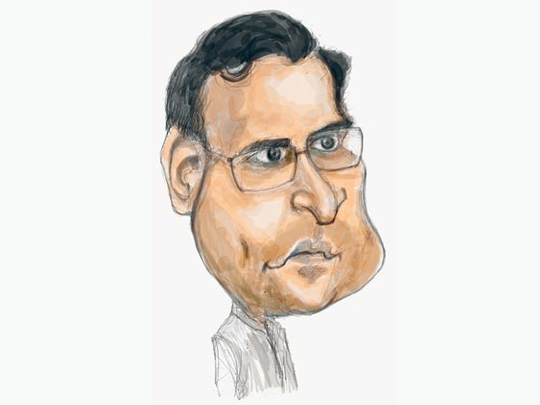
Rahul Gandhi is a very, very eligible bachelor. The Cambridge-educated 39-year-old has money, charisma, a fierce intellect and, according to the press, "sexy dimples". He also has a country of one billion people to inherit if he fancies it.
Rahul is the shining young light of the Nehru-Gandhi dynasty that has ruled India for most of its post-independence history. His ascent to the position of prime minister is considered to be a question of when, not if.
But Rahul is certainly not India's only political dynast. The chokehold that dynasties have over the length and breadth of Indian politics tightened towards the end of 2009, with a frightening number of victories for family clans in the country's state assembly elections.
The polls for Maharashtra in October encapsulated the black hole into which Indian democracy is vanishing. To give a few quick examples from this one state, the seat for the city of Amravati was won by the president of India's son. A little further south in the city of Latur, the seat was won by a son of a former state chief minister. The seat for Solapur was scooped by a daughter of another ex-chief minister. Ghatkopar West (a Mumbai suburb) was contested by the daughter of a deceased Bharatiya Janata Party (BJP) leader, while the town of Parli was won by a senior BJP figure's daughter.
The results caused one Indian writer to declare that "soon politics will be the monopoly of 400 families", and that she could see "the doors of democracy closing on the poor". It is Rahul Gandhi's starring role as India's prince-in-waiting that fuels this poisonous process. His presence legitimises every provincial dynasty in Indian politics.
India has its reasons for being susceptible to voting for the offspring of the powerful. In a country where hundreds of millions are denied a decent education, people are more inclined to unite under a face than under a set of policies. Recognisable family names win easy votes. Furthermore, within Indian society there is no inherent respect for merit. It is something to be attributed, not achieved. Merit, after all, is granted at birth to those of high caste.
So the problems that prevent India escaping dynastic rule are immense. But the risks of allowing this age of oligarchy to continue are immense as well. Rural India is currently at a tipping point, facing the interlinked threats of insurgencies, climate chaos and endemic hunger. These threats can only be overcome if India can source political talent from the entire reach of its colossal population. But it could soon have no tools against its problems except the fetid and complacent politics of privileged family clans.
History
If Rahul Gandhi wants to be reminded of the ultimate threat of dynastic politics — that of tyranny he need only check his recent family history. The Nehru-Gandhi regime, in its current state, is broadly benign. But it was Indira Gandhi who halted the country's democratic process in its tracks, bringing the torture and arbitrary arrests of the Emergency from 1975 to 1977. She was blind to the crimes of her son Sanjay (Rahul's uncle), who unleashed a nightmarish sterilisation programme on slum dwellers.
The signs indicate that Rahul is a capable and decent man. But neither those cute dimples, nor that beautiful mind, should matter one iota to anyone who wishes to see India mature into a genuine democracy. He represents dynastic power — the antithesis of equality and freedom. Yet there's barely a hint of the "Stop Rahul" movement that the country desperately needs.
The best current hope, sadly, lies with the man himself. India not only has a politics of dynasty. It also has a politics of renunciation.
Back in 2008, prominent figures were already talking up Rahul's chances of running for prime minister in the spring 2009 general elections. Rahul, however, fell in line behind Manmohan Singh and renounced even a Cabinet post.
He could, of course, be merely shielding himself from premature power. But he has stated that even though he is a product of a closed political system, he is fighting to break it open again. And he's surely familiar with the words of the Mahatma: "You must be the change you want to see in the world." Is there a small hope that he might be considering something courageous?
If Rahul allows himself to rise and rule his country, then another generation of Indians will be silently taught that power is a birthright. But if he publicly renounces the opportunity to become prime minister, now and forever, such a stunning act of self-sacrifice would serve to shake the family fiefdoms across India. It is agonising to witness immense India in a situation where one young man can decide whether or not to claim her as his own. But this mummy's boy is smart — let's hope that he's smart enough to stop himself and what he represents. Rahul Gandhi must renounce India.
Michael Connellan is a writer based in New Delhi. He is also a consultant for the Schumacher Centre, an NGO that focuses on rural Indian poverty.









